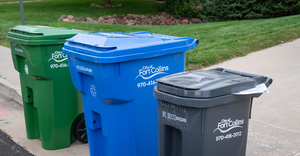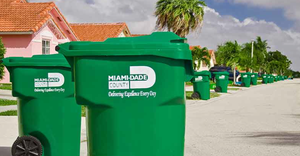NSWMA Urges Supreme Court to Reconsider Flow Control Decision
November 1, 2001
Danielle Jackson
The National Solid Wastes Management Association (NSWMA), Washington, D.C., has announced that it would file an amicus brief with the U.S. Supreme Court by the end of October, urging it to review a July 2001 federal appeals court flow control decision [United Haulers Association v. Oneida-Herkimer Solid Waste Management Authority, 2d Cir. July 27, 2001].
The amicus brief will be filed in support of the United Haulers' Petition for Certiorari. In it, the NSWMA intends to argue that the appeals court decision conflicts with the Supreme Court's 1994 ruling in C&A Carbone Inc. v. Town of Clarkstown, which found that Clarkstown, N.Y.'s flow control law violated the Commerce Clause of the U.S. Constitution.
In United Haulers, the federal appeals court reversed an earlier lower court ruling that New York's Oneida and Herkimer Counties' flow control laws violated the Commerce Clause because the Carbone decision applied only to privately owned facilities, whereas the United Haulers case applied to a publicly owned facility.
“There's an obvious difference” between privately and publicly owned facilities, says Michael J. Cahill, an independent lawyer representing Oneida and Herkimer Counties. “The public sector is a different animal in the Constitutional system than the private sector,” he adds.
According to David Biderman, general counsel for the NSWMA, the amicus brief is “an opportunity for people who aren't parties to lawsuits to educate judges about the broader implications of legal decisions. Here, the amicus brief will help explain the potential implications of the re-establishment of flow control … and its effect on waste generators and people in the industry,” he says.
Biderman added that at press time, the NSWMA was talking with several business groups interested in joining the brief. Businesses can sign onto the NSWMA's brief without having to file a separate brief, Biderman says.
Under its own rules, the Supreme Court can choose whether it wants to hear the case and likely will decide by early next year. If the Court decides to hear the case, a briefing likely will occur in the spring or summer of 2002, with oral arguments in the fall of 2002 and a decision by early 2003, Biderman says.
Cahill says that Oneida and Herkimer Counties currently are practicing flow control. He is not aware that other counties in New York have taken action, but says that he has received calls from public authorities in other states. “People have called to ask where the case is, so there's definitely some interest,” he says, “but I think [they're] waiting for the Supreme Court to decide on this.”
At press time, the Solid Waste Association of North America (SWANA), Silver Spring, Md., whose members are predominantly public sector solid waste management officials, had not formally decided to answer the case.
The deadline to file the petition was Oct. 25, 2001. United Haulers was scheduled to file in late October, with the National Solid Wastes Management Association following suit.
You May Also Like


